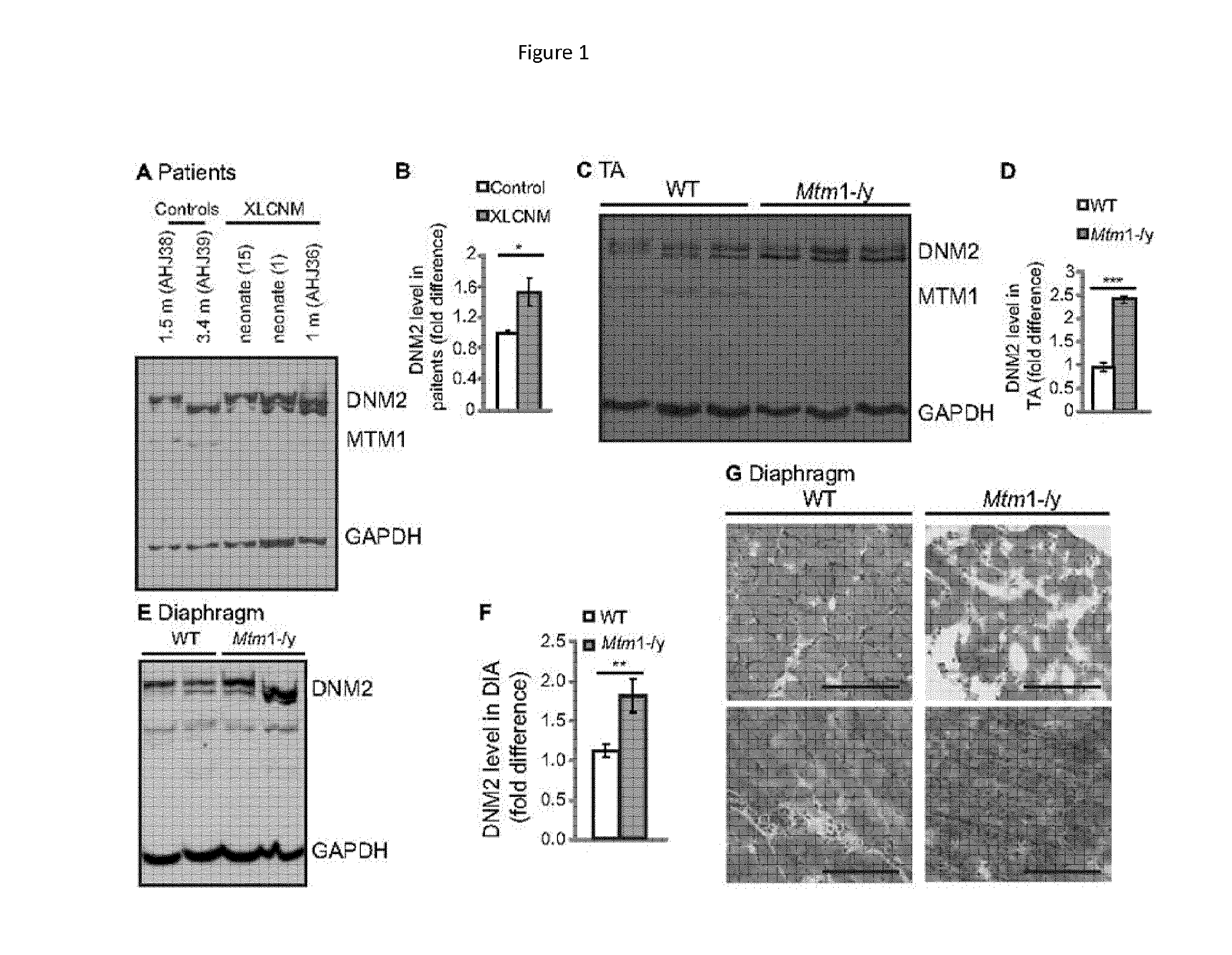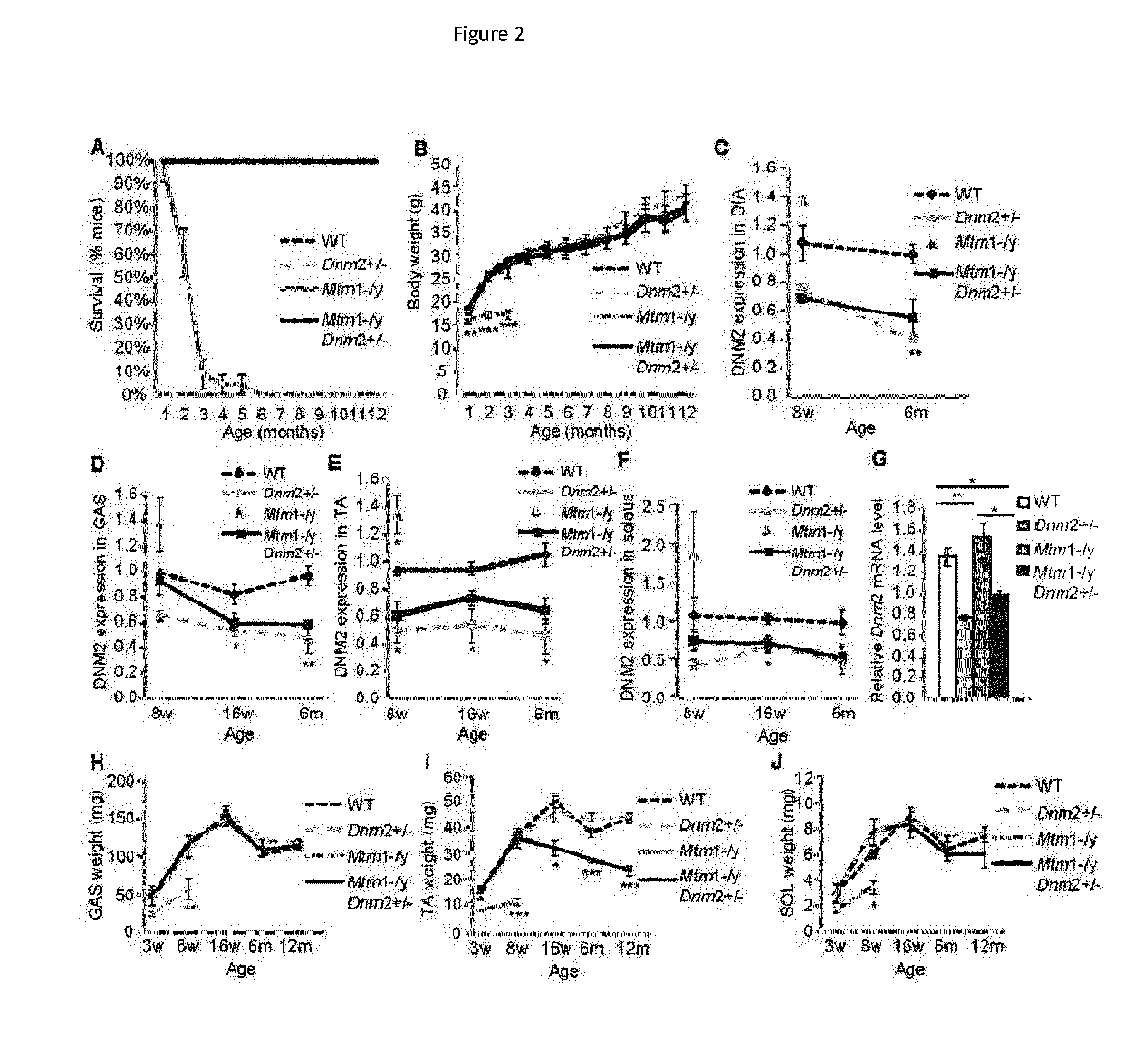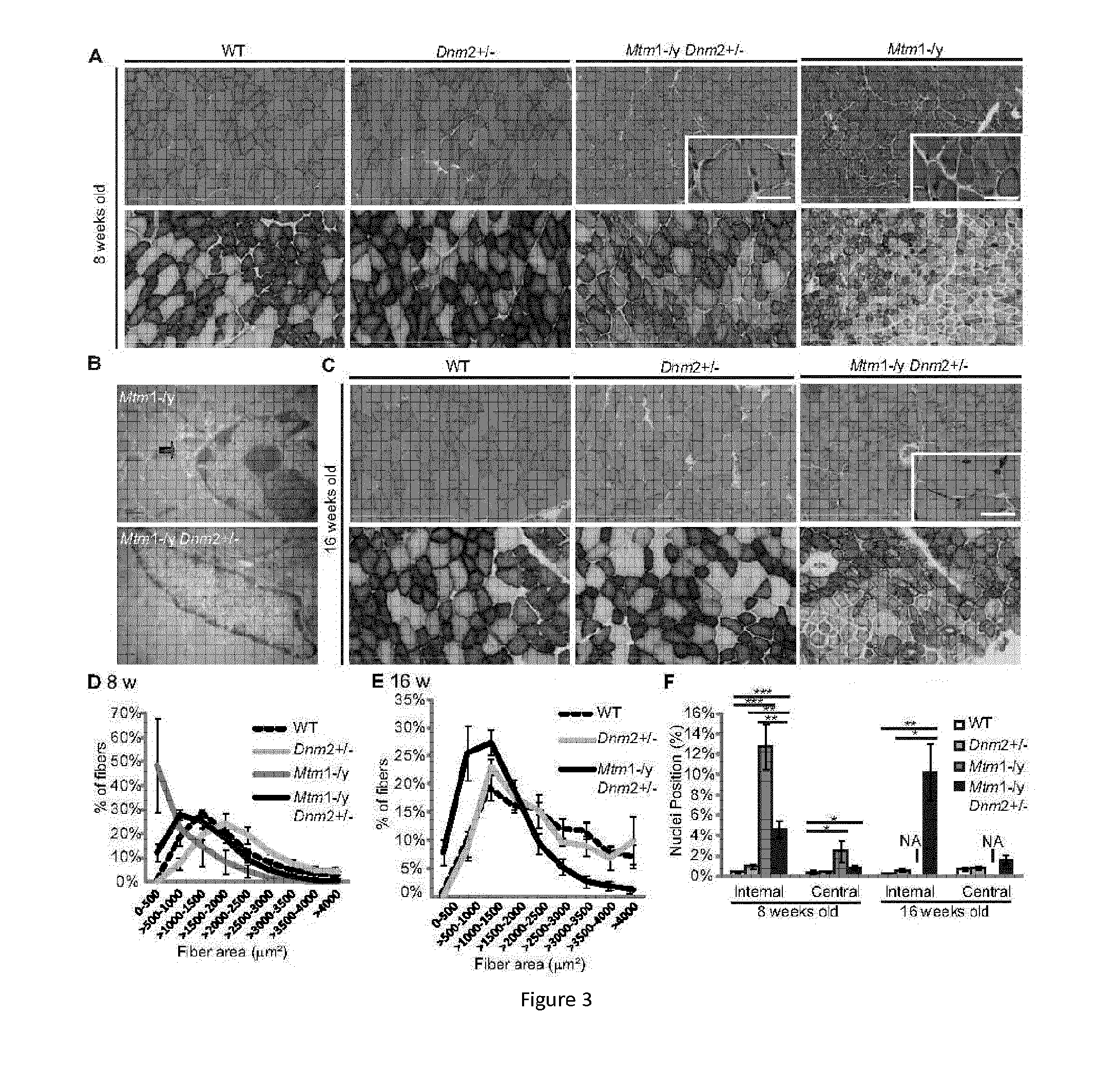Dynamin 2 inhibitor for the treatment of centronuclear myopathies
a technology of centronuclear myopathy and dynamin 2, which is applied in the direction of muscular disorders, drug compositions, instruments, etc., can solve the problems of destroying the effect, no cure, no effective treatment option for this disorder, and lack of potent therapeutic approaches
- Summary
- Abstract
- Description
- Claims
- Application Information
AI Technical Summary
Benefits of technology
Problems solved by technology
Method used
Image
Examples
example 1
[0122]Materials. Primary antibodies used were: mouse anti-DHPRα1 (Cav1.1) subunit (MA3-920; Affinity Bioreagents), α-actinin (EA-53, Sigma-Aldrich), caveolin-3 (clone 26, BD Biosciences), desmin (Y-20; Santa Cruz Biotechnology) and glyceraldehyde-3-phosphate dehydrogenase (GAPDH, MAB374; Chemicon) monoclonal antibodies; and rabbit anti-RYR1 (a kind gift from Isabelle Marty, Grenoble Institut des Neurosciences, France). Rabbit anti-DNM2 antibodies (R2680 and R2865, characterized in Cowling, B. S. et al., 2011, Increased expression of wild-type or a centronuclear myopathy mutant of dynamin 2 in skeletal muscle of adult mice leads to structural defects and muscle weakness, Am J Pathol 178:2224-2235. Increased expression of wild-type or a centronuclear myopathy mutant of dynamin 2 in skeletal muscle of adult mice leads to structural defects and muscle weakness. Am J Pathol 178:2224-2235) and anti-MTM1 (R2827) (Hnia, K., et al. J. 2011. Myotubularin controls desmin intermediate filament ...
example 2
[0155]Materials and Methods are the same as, or equivalent to, the ones used in example 1.
[0156]The Bin1− / − mice is a mouse model for ARCNM and does not survive more than 24 hours after birth.
[0157]The Table 1 below show the results obtained with mice having different genotypes.
TABLE 1expectednumber ofMendelianmiceObservedGenotyperatioobservedratioWild type25%4635%Bin1+ / −50%8565%Bin1− / −25%0 0%
[0158]Bin1− / − mice die perinatally. Genotype counting a few days after birth of several litters obtained by crossing Bin1+ / − males with Bin1+ / − females, and showing absence of the Bin1− / − genotype.
[0159]As an illustration that downregulation of DNM2 can significantly ameliorate the phenotypes of a mouse model for ARCNM (the Bin1− / − mouse), a 50% decrease of Dynamin 2 in the Bin1− / − mouse can efficiently rescue the early lethality, leading to the survival of Bin1− / −Dnm2+ / − mice for at least 12 months (FIG. 20), which have a sub-normal body weight (FIG. 20) and a normal specific muscle force, res...
example 3
[0161]Materials and Methods
[0162]Production and Purification of AAV:
[0163]AAV2 / 9 vectors were generated by a triple transfection of AAV-293 cell line with pAAV2 insert containing the insert under the control of the CMV promoter and flanked by serotype 2 inverted terminal repeats, pXR1 containing rep and cap genes of AAV serotype 9, and pHelper encoding the adenovirus helper functions. Cell lysates were subjected to 3 freeze / thaw cycles, then treated with 50 U / mL of Benzonase (Sigma) for 30 minutes at 37° C., and clarified by centrifugation. Viral vectors were purified by Iodixanol gradient ultracentrifugation followed by dialysis and concentration against Dulbecco's Phosphate Buffered Saline using centrifugal filters (Amicon Ultra-15 Centrifugal Filter Devices 30K, Millipore, Bedford). Physical particles were quantified by real-time PCR using a plasmid standard pAAV-eGFP, and titers are expressed as viral genomes per milliliter (vg / mL). rAAV titers used in these experiments were 5 t...
PUM
 Login to View More
Login to View More Abstract
Description
Claims
Application Information
 Login to View More
Login to View More - Generate Ideas
- Intellectual Property
- Life Sciences
- Materials
- Tech Scout
- Unparalleled Data Quality
- Higher Quality Content
- 60% Fewer Hallucinations
Browse by: Latest US Patents, China's latest patents, Technical Efficacy Thesaurus, Application Domain, Technology Topic, Popular Technical Reports.
© 2025 PatSnap. All rights reserved.Legal|Privacy policy|Modern Slavery Act Transparency Statement|Sitemap|About US| Contact US: help@patsnap.com



